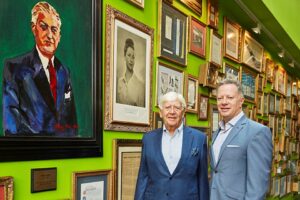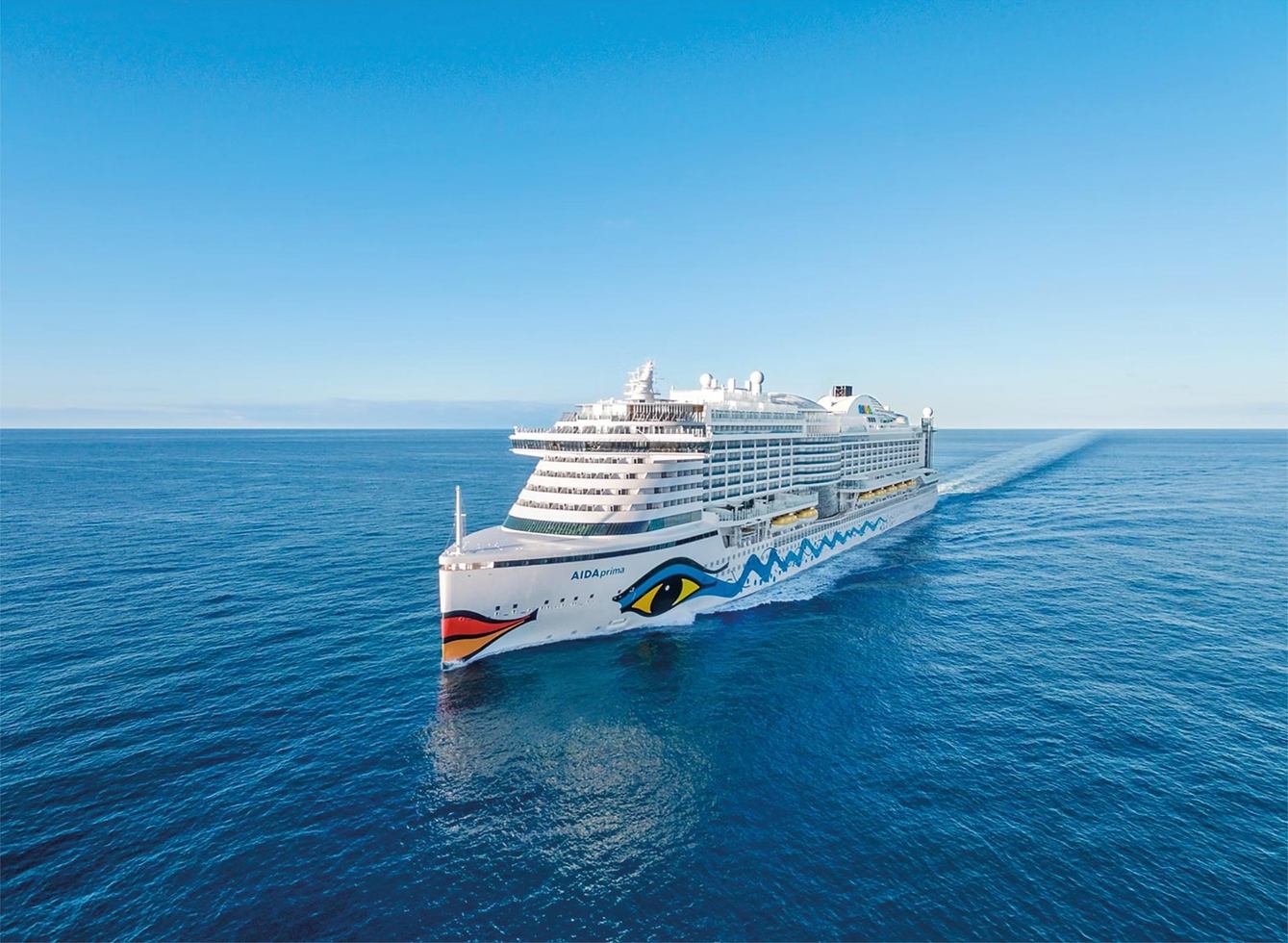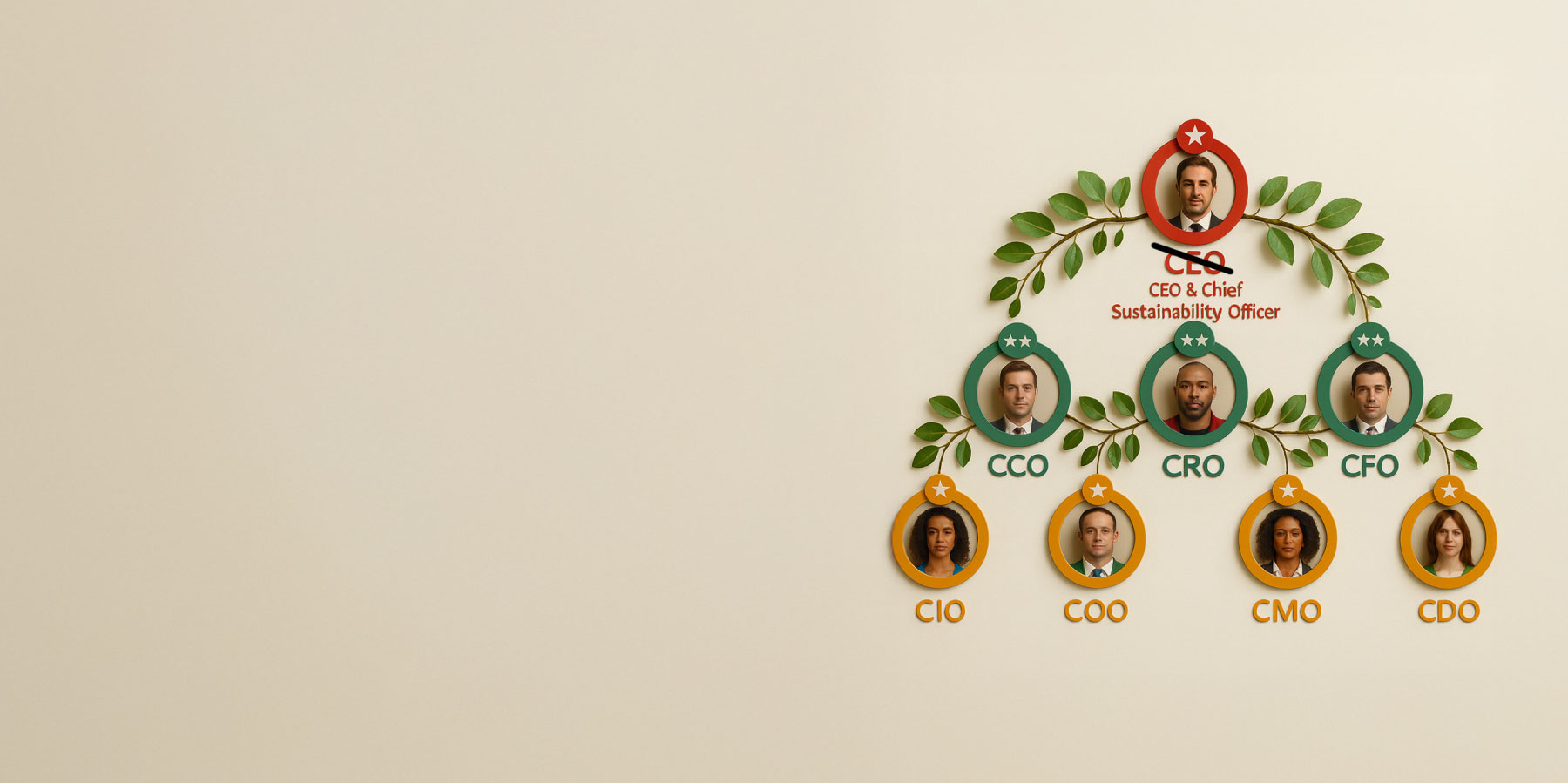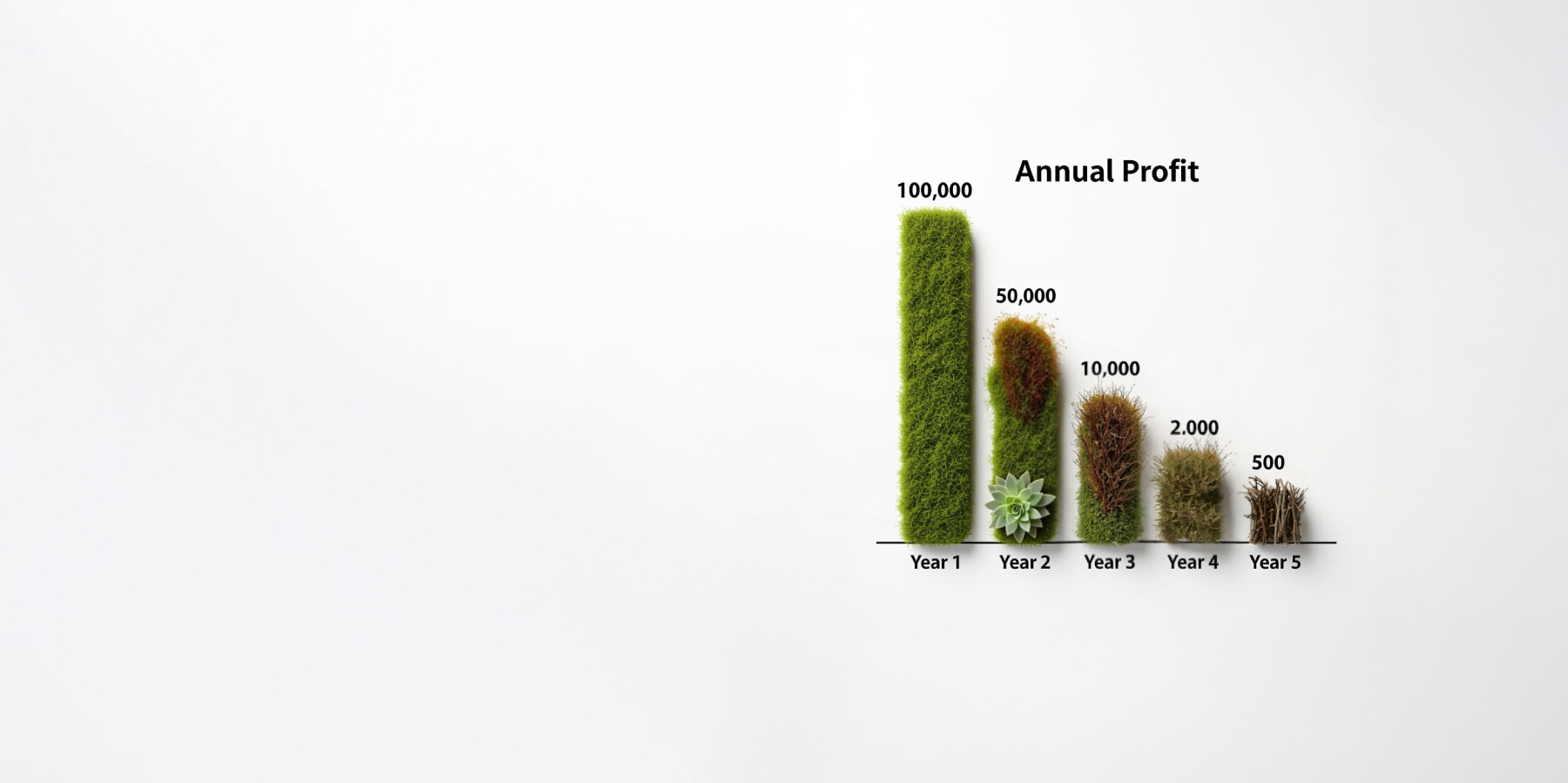
Pentland Group: A family of brands
Receiving one of the most prestigious accolades for “excellence in family business” was a memorable moment for Andy Rubin, third generation family shareholder and chairman of Pentland Brands – the brand management division of Pentland Group plc.
Pentland Group plc, a second- and third-generation family enterprise, started in 1932 as a shoe distributor and then a manufacturer. It later diversified into other businesses, only to ultimately re-focus and become a “family of brands”. The global brand management company is headquartered in London, UK. Owned by just six family members, it employs over 20,500 people worldwide and generates about £2.9 billion in sales.
Pentland Group plc operates in the areas of sports, fashion, outdoor clothing and equipment through three divisions.
- Its core business, Pentland Brands, manages a portfolio of owned brands including Speedo, Berghaus, Canterbury, Mitre and KangaROOS; Lacoste and Ted Baker as licensed brands for global footwear, and Kickers as a licensed brand for the UK.
- The retail division comprises JD Sports Fashion, a chain of over 1,300 retail shops, in which Pentland Group is a majority shareholder.
- The Investment Division supports group diversification by investing in new ventures or partnering with start-ups with a mandate to learn from entrepreneurs and innovate.
Pentland Group plc was recognized by IMD for its commitment to sustainability, ethical trade, human rights, outstanding contributions to combating modern day slavery as well as its skill in regenerating itself through innovation and entrepreneurial venturing.
For Pentland Group plc, the IMD Global Family Business Award is the first global recognition of its achievements. But it had been recognized previously on a local and regional scale as the 2008 Best Family Business in the UK (based on business success, family governance and CSR) by the Institute for Family Business. In 2014, Pentland was awarded European Family Business of the Year by Campden and this year the UK Family Business of Excellence by the 2017 EY Entrepreneur of the Year Awards. Pentland Group has also won five Queen’s Awards for Enterprise – one of the most prestigious UK awards for business performance. In 2016, the Great Place to Work Institute named Pentland Brands as one of the best workplaces in the UK and in Europe.
Building a family of brands for the world to love, generation after generation
Pentland Group’s roots can be traced back to 1932, when Berko and Minnie Rubin – immigrants from Eastern Europe – set up the Liverpool Shoe Company, a small fashion footwear business, with just over £100 as a capital base raised from family and friends. The two generations that followed expanded the business in a number of directions. Significant among these was an expansion into the manufacture of women’s footwear in the 1940s to 1960s, followed by pioneering the outsourcing of footwear manufacturing to Asia in the early 1970s.
In 1981, it invested US$77,500 for a majority stake in a struggling American sports brand called Reebok. This investment was sold 10 years later for a 10,000-fold return on investment.
With the proceeds, the company started to develop a portfolio of owned brands at Pentland Brands being guided by a single purpose: “Building a family of brands for the world to love, generation after generation.”
Pentland Brands relies on superior brand management skills and innovation capabilities, for example:
- Speedo is the number one performance swimwear brand worldwide with a 65% market share. At the 2012 Summer Olympics, 57% of medals were won in Speedo and at the 2008 Olympics Michael Phelps became the most decorated athlete ever, winning 22 medals, all wearing Speedo suits. Speedo’s Aqualab is the driving force behind Speedo swimwear innovation, taking inspiration from many different sources such as mimicking sharkskin with the Speedo Fastskin in 2000, to working with NASA scientists to develop the legendary LZR Racer.
- Berghaus is the market leader for performance outdoor clothing, backpacks and footwear in the UK. It launched the first commercially available Gore-Tex jacket in Europe and won many industry awards as well as the 2006 Queen’s Award for Enterprise for innovation demonstrated throughout the company.
- Pentland Brands also pushed the boundaries of technical innovation with Canterbury by developing the Rugby World Cup 2015 Elite test jersey for England, Ireland and Japan using super-enhanced fit technology with position-specific 3D body-mapping.
- With Mitre, it developed Hyperseam technology, fusing high-tension machine stitches and bonded seams for football panels, enabling such benefits as almost zero water uptake, size and shape retention, and reduced resonance.

Brands with social purpose
Pentland Group set the industry standards for fair trade and sustainability when Stephen Rubin, second generation family leader, served as World Chairman of the Textile Institute and President of the World Federation of the Sporting Goods Industry. “We made a phenomenal difference to eliminating child labor in India and Pakistan,” said Stephen Rubin. Pentland’s leadership and actions in the textile and sporting goods arena has resonated purposefully in the industry.
Corporate responsibility became an inherent part of Pentland’s business culture and model. Pentland Brands set its corporate strategy responsibility goals along three criteria: (i) building brands with social purpose; (ii) future-proofing the supply chain; and (iii) respecting human rights and tackling inequality. It measures progress on these achievements, reporting it in a comprehensive annual Corporate Responsibility Review.
In 2002 Stephen Rubin was appointed as an Officer of the Order of the British Empire (OBE) for services to business and to human rights. In 2010 he received an honorary Doctor of Art (DArt) degree from Nottingham Trent University in recognition of his outstanding contribution to the footwear and sportswear industries and for raising ethical standards in manufacturing.
In 2015, the Rubin family sponsored a new Chair in Sustainability at the Lancaster University Management School and launched the Pentland Centre for Sustainability in Business. The vision of the Pentland Centre is to create a world-class hub for transdisciplinary research on sustainability, exploring macro trends particularly in environmental sustainability, ethical trade, human rights and to engage directly with leading organizations, including the World Business Council for Sustainable Development (WBCSD). In 2016, in collaboration with Lancaster University, Pentland developed a toolkit to prevent modern slavery and assess its risk at every one of its first-tier suppliers. In 2017, Pentland Brands published its first Modern Slavery Report.
Benoit Leleux is Stephan Schmidheiny Professor of Entrepreneurship and Finance at IMD.
Marta Widz is Family Business Researcher at IMD.
The IMD Global Family Business Award was created in 1996. The aim of the award, which provides a unique platform for sharing best practices and analyzing the economic backdrop, is to promote family businesses by highlighting the exceptionally high standards they are capable of and the many forms they may take. The 2017 award ceremony took place during the 28th Summit of the Family Business Network International (FBN-I) in Gran Canaria, Spain.
Research Information & Knowledge Hub for additional information on IMD publications

Updated Doughnut of social and planetary boundaries shows urgent gaps. Businesses must act to balance human needs with a thriving planet.

The success of American companies and pension funds depends on international markets, giving the world leverage to keep the US on board for the energy transition.

The Swiss-based energy group is plotting a course toward a renewables-focused future, without abandoning its traditional customer base.
It is 2035. AI and sustainability have become deeply connected forces shaping the way we live, work and create value. From intelligent energy systems to regenerative supply chains and inclusive digital infrastructure, the merger of AI and sustaina...

Businesses can showcase their commitments to nature and sustainability by using new voluntary biodiversity credits to invest in conservation actions that can be measured.

Business leaders must master the art of building strategies that take account of partisan divides over net-zero goals while progressing the interests of their company and society.

A guide to help businesses navigate the rapidly evolving voluntary biodiversity credit (VBC) markets.
This guide aims to help businesses navigate the rapidly evolving voluntary biodiversity credit (VBC) markets and decide whether and how to engage in VBCs. It is intended for companies that want to help halt biodiversity loss or restore and regener...

Rethinking sustainability at Bayer, Daniel Schneiders shows how shifting team ownership and decision-making drives lasting impact across the company.

Climate risk is financial risk and delaying action only increases costs. Despite backlash, the shift to a cleaner energy future must accelerate.
in I by IMD
Research Information & Knowledge Hub for additional information on IMD publications
in I by IMD
Research Information & Knowledge Hub for additional information on IMD publications
Research Information & Knowledge Hub for additional information on IMD publications
Research Information & Knowledge Hub for additional information on IMD publications
in I by IMD
Research Information & Knowledge Hub for additional information on IMD publications
Research Information & Knowledge Hub for additional information on IMD publications
in I by IMD
Research Information & Knowledge Hub for additional information on IMD publications
IMD white paper, 23 September 2025
Research Information & Knowledge Hub for additional information on IMD publications
in I by IMD
Research Information & Knowledge Hub for additional information on IMD publications
in I by IMD
Research Information & Knowledge Hub for additional information on IMD publications

